Is Religion A Force For Good?
James C. Rocks [2023-09-22]
 The claim is often made that atheism is immoral and that religion is essential for any moral life to be lived yet the evidence suggests nothing could be further from the truth.
The claim is often made that atheism is immoral and that religion is essential for any moral life to be lived yet the evidence suggests nothing could be further from the truth.
The Invalidity Of NOMA
Unknown Author [2019-06-30]
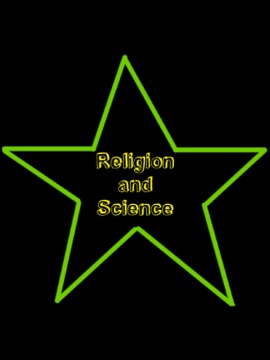 NOMA (non-overlapping magisteria) is a view, advanced by the late Stephen Jay Gould, that science and religion each represent different areas of inquiry, fact vs. values, over which they have "a legitimate domain of authority," and that the two do not overlap (Wikipedia). In many ways NOMA can be seen to be an attempt to stop the warring between religious and science-oriented factions and this article argues that NOMA is effectively invalid.
NOMA (non-overlapping magisteria) is a view, advanced by the late Stephen Jay Gould, that science and religion each represent different areas of inquiry, fact vs. values, over which they have "a legitimate domain of authority," and that the two do not overlap (Wikipedia). In many ways NOMA can be seen to be an attempt to stop the warring between religious and science-oriented factions and this article argues that NOMA is effectively invalid.
No, I'm Not Broken!
James C. Rocks [2016-05-01]
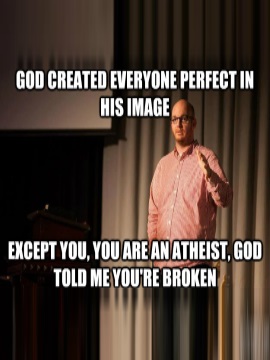 I am an atheist and pretty damned proud of being one! I like that I don't subscribe to anyone's particular way of thinking. Of course, like anyone else, I am influenced by views I hear or read but I believe I think about those things and decide whether or not they make any sense. Whether I use it or not all the time, I believe I have the ability to think critically ... that's why I am a fan of science, why I am an atheist and, more recently, why I am not a Brexiter. I like to think of it as an alarm bell, a bullshit-o-meter that goes off whenever I think something doesn't feel or smell right.
I am an atheist and pretty damned proud of being one! I like that I don't subscribe to anyone's particular way of thinking. Of course, like anyone else, I am influenced by views I hear or read but I believe I think about those things and decide whether or not they make any sense. Whether I use it or not all the time, I believe I have the ability to think critically ... that's why I am a fan of science, why I am an atheist and, more recently, why I am not a Brexiter. I like to think of it as an alarm bell, a bullshit-o-meter that goes off whenever I think something doesn't feel or smell right.
A Personal Relationship With God
James C. Rocks [2018-03-19]
 If I had a dollar for every time a theist has tried to tell me we atheists can't understand their relationship with god I'd be ... well I wouldn't actually be rich but I'd probably be able to buy my family a decent curry and several beers each. Suffice to say, it's a common claim but it's also wrong and here's why.
If I had a dollar for every time a theist has tried to tell me we atheists can't understand their relationship with god I'd be ... well I wouldn't actually be rich but I'd probably be able to buy my family a decent curry and several beers each. Suffice to say, it's a common claim but it's also wrong and here's why.
Why I Celebrate Christmas
James C. Rocks [2016-13-15]
 Over twenty years ago, an ex-colleague of mine (who had turned out to be a creationist, the first I have ever met) got into an email discussion where, after making a number of typically unsupportable assertions, aggressively asked me why I, an atheist, celebrated Christmas.
Over twenty years ago, an ex-colleague of mine (who had turned out to be a creationist, the first I have ever met) got into an email discussion where, after making a number of typically unsupportable assertions, aggressively asked me why I, an atheist, celebrated Christmas.
Genesis and The Big Bang
James C. Rocks [2016-10-15]
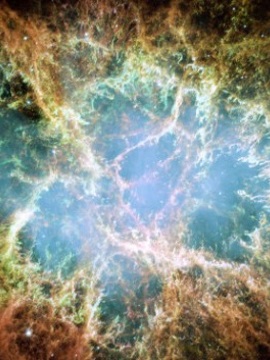 Fundamentalists will often use the argument attempt to claim that the bible and science are compatible in that Genesis can be interpreted as predictive of modern-day scientific knowledge. The implications of such a claim, were it to be demonstrated as true would be immense ... whilst it would not automatically demonstrate the bible as being correct from cover to cover it would certainly lend it a great deal of credence.
Fundamentalists will often use the argument attempt to claim that the bible and science are compatible in that Genesis can be interpreted as predictive of modern-day scientific knowledge. The implications of such a claim, were it to be demonstrated as true would be immense ... whilst it would not automatically demonstrate the bible as being correct from cover to cover it would certainly lend it a great deal of credence.
Abiogenesis
James C. Rocks [2016-10-01]
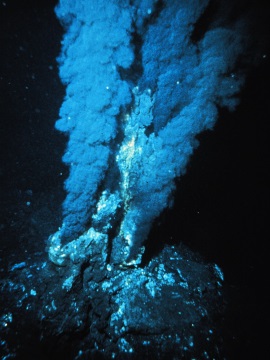 Spontaneous generation is not a specifically evolutionary concept; the Theory of Evolution is biogenetic (life from life) in nature and the specific area of study, abiogenesis (the advent of life from non-life), is studied by those wishing to understand how life may have arisen. Indeed, the concept of spontaneous generation, the notion that inanimate matter could suddenly become alive, goes back as far as Aristotle.
Spontaneous generation is not a specifically evolutionary concept; the Theory of Evolution is biogenetic (life from life) in nature and the specific area of study, abiogenesis (the advent of life from non-life), is studied by those wishing to understand how life may have arisen. Indeed, the concept of spontaneous generation, the notion that inanimate matter could suddenly become alive, goes back as far as Aristotle.
Some Definitions
James C. Rocks [2016-09-15]
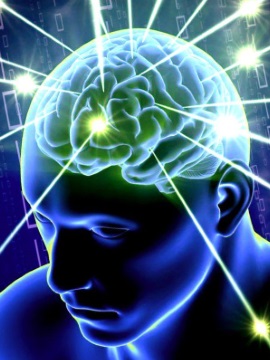 In their battles against the godless heathens of the scientific community, creationists will often make scientific-sounding definitions and use these in attempts to destroy the basis of their enemy’s arguments and as such it is useful to have a fixed set of definitions for the more common scientific & religious concepts.
In their battles against the godless heathens of the scientific community, creationists will often make scientific-sounding definitions and use these in attempts to destroy the basis of their enemy’s arguments and as such it is useful to have a fixed set of definitions for the more common scientific & religious concepts.
The Passion of The Christ
James C. Rocks [2016-09-01]
 I genuinely had no intention of going to see Gibson's "The Passion of the Christ". Several people had opined on how bad (gory, violent, bloody) the film was and I did not want to contribute to the coffers of Mr Gibson whose then behaviour I had been viewing with some alarm. The offer of free tickets by some local churches apparently aware and happy that many of those applying for them were atheist or agnostic changed that and both I and a friend set off to see it.
I genuinely had no intention of going to see Gibson's "The Passion of the Christ". Several people had opined on how bad (gory, violent, bloody) the film was and I did not want to contribute to the coffers of Mr Gibson whose then behaviour I had been viewing with some alarm. The offer of free tickets by some local churches apparently aware and happy that many of those applying for them were atheist or agnostic changed that and both I and a friend set off to see it.
Evolution and Immorality
James C. Rocks [2016-08-15]
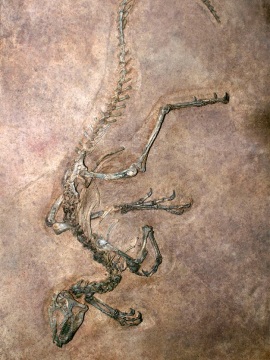 Young Earth creationists, attempting to disprove any theory that disputes their belief that the Earth & universe were divinely created, often use arguments that attempt to demonstrate theories opposing theirs as immoral. Darwin's theory of Evolution (or Neo-Darwinism as it known today) is claimed to be the cause of violence, racism and other forms of immoral behaviour.
Young Earth creationists, attempting to disprove any theory that disputes their belief that the Earth & universe were divinely created, often use arguments that attempt to demonstrate theories opposing theirs as immoral. Darwin's theory of Evolution (or Neo-Darwinism as it known today) is claimed to be the cause of violence, racism and other forms of immoral behaviour.
Sharia Law
Ben S [2016-07-15]
 I have always had a fairly tolerant attitude towards pretty much everything, part of being a liberal at heart, so I have generally felt that religion needed to be tolerated just as long as it didn't actually do anything inherently divisive. The example I always used was that of the Church of England. Anglicanism in the UK has always been the village-fête faith. The tombola faith. The bingo faith.
I have always had a fairly tolerant attitude towards pretty much everything, part of being a liberal at heart, so I have generally felt that religion needed to be tolerated just as long as it didn't actually do anything inherently divisive. The example I always used was that of the Church of England. Anglicanism in the UK has always been the village-fête faith. The tombola faith. The bingo faith.
Ghosts and Out-Of-Body Experiences
James C. Rocks [2016-07-01]
 Are ghosts real and are people's claims to out-of-body experiences genuine? An entire media culture, books, films and TV are devoted to such things, indeed, the basis of almost all religions is that an important part of us is the ghost-like spirit, soul or daemon. In my not-so-humble opinion, it is ludicrous to believe in such things as there isn't a shred of validatable evidence ...
Are ghosts real and are people's claims to out-of-body experiences genuine? An entire media culture, books, films and TV are devoted to such things, indeed, the basis of almost all religions is that an important part of us is the ghost-like spirit, soul or daemon. In my not-so-humble opinion, it is ludicrous to believe in such things as there isn't a shred of validatable evidence ...
Has Satan Been Given A Fair Chance?
James C. Rocks [2016-06-15]
 So, I was wondering about Satan. You know, the little red angry guy with the horns and off around the world corrupting it 'n all that and I started wondering. I mean, has the guy really been given a chance? We're told he lives in a place called hell which is where we all go if we don't follow "da roolz" after we're dead but if we do (follow "da roolz") we're good and off we po to some place called Heaven. I mean, do we? I mean, is this bloke Satan really all that bad?
So, I was wondering about Satan. You know, the little red angry guy with the horns and off around the world corrupting it 'n all that and I started wondering. I mean, has the guy really been given a chance? We're told he lives in a place called hell which is where we all go if we don't follow "da roolz" after we're dead but if we do (follow "da roolz") we're good and off we po to some place called Heaven. I mean, do we? I mean, is this bloke Satan really all that bad?
Evolution vs Science
James C. Rocks [2016-05-15]
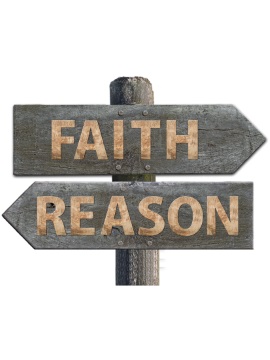 One of the biggest charges laid at the door of science by creationists is that the Theory of Evolution requires as much faith as a belief in a god and, as such, the "theory" of creation should be taught in schools alongside evolution as a science.This article demonstrates that the Theory of Evolution fully adheres to scientific principles and that creation, and particularly, creation "science" cannot be considered as a science at all.
One of the biggest charges laid at the door of science by creationists is that the Theory of Evolution requires as much faith as a belief in a god and, as such, the "theory" of creation should be taught in schools alongside evolution as a science.This article demonstrates that the Theory of Evolution fully adheres to scientific principles and that creation, and particularly, creation "science" cannot be considered as a science at all.
Why I Am An Atheist
James C. Rocks [2016-05-01]
 I am an atheist. I'm proud of being what I am because, to my mind, it implies a certain amount of intelligent consideration of the issues surrounding religions and their claims. However, I don't usually start discussions on atheism or religion because of what I am ... more often than not, something or someone will bring up the subject. That's in public but mostly it's online where I have frequently been as to why it is, I am an atheist.
I am an atheist. I'm proud of being what I am because, to my mind, it implies a certain amount of intelligent consideration of the issues surrounding religions and their claims. However, I don't usually start discussions on atheism or religion because of what I am ... more often than not, something or someone will bring up the subject. That's in public but mostly it's online where I have frequently been as to why it is, I am an atheist.
Why I Am Anti-Faith
Unknown Author [2016-04-15]
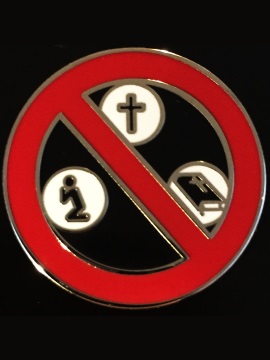 We've all heard the stories. A guy's down in the dumps, life's shot, no money, no future, in pain from some sort of medical problem that he can't afford to have fixed, probably in trouble for some reason or another beyond that… and then, one day, that person finds God. It's from such ideas that the comfort of the "salvation" story seems to arise.
We've all heard the stories. A guy's down in the dumps, life's shot, no money, no future, in pain from some sort of medical problem that he can't afford to have fixed, probably in trouble for some reason or another beyond that… and then, one day, that person finds God. It's from such ideas that the comfort of the "salvation" story seems to arise.
A Hospice for the Mind
Ben S [2016-04-01]
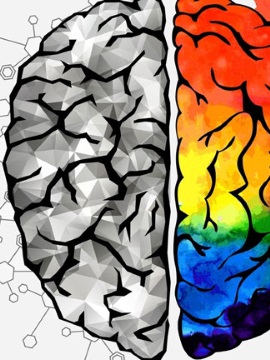 A recent poll suggests that Americans see religion as increasingly important in their lives. Another shows numbers visiting British churches are on the rise for the first time in decades. However, this is interpreted, the sheep are clearly flocking. It seems the reason is far from shrouded in obscurity, on this occasion there is no movement in mysterious ways, it is caused by the change in attitude following the atrocity of the eleventh of September 2001.
A recent poll suggests that Americans see religion as increasingly important in their lives. Another shows numbers visiting British churches are on the rise for the first time in decades. However, this is interpreted, the sheep are clearly flocking. It seems the reason is far from shrouded in obscurity, on this occasion there is no movement in mysterious ways, it is caused by the change in attitude following the atrocity of the eleventh of September 2001.
George Carlin (1937–2008)
Copyright [2016-03-01]
 The late, great George Carlin died, as we all must do, in 2008 but left behind him a legacy of intelligent humour and a loyal fanbase. The article printed here enshrines Carlin's view on religion and was a part of "You Are All Diseased" show, recorded live at New York City's Beacon Theatre on February 6, 1999.
The late, great George Carlin died, as we all must do, in 2008 but left behind him a legacy of intelligent humour and a loyal fanbase. The article printed here enshrines Carlin's view on religion and was a part of "You Are All Diseased" show, recorded live at New York City's Beacon Theatre on February 6, 1999.
A Good God?
James C. Rocks [2016-02-15]
 In 2002 two young British girls went missing from the house of one of their parents. As a father of two young (at the time) girls, I followed the story to its inevitable conclusion with the girl's bodies being found in shallow graves near an airbase in Surrey and a couple in their home village being arrested for their murder.
In 2002 two young British girls went missing from the house of one of their parents. As a father of two young (at the time) girls, I followed the story to its inevitable conclusion with the girl's bodies being found in shallow graves near an airbase in Surrey and a couple in their home village being arrested for their murder.
"The Jesus Mysteries", Timothy Freke & Peter Gandy
James C. Rocks [2016-02-01]
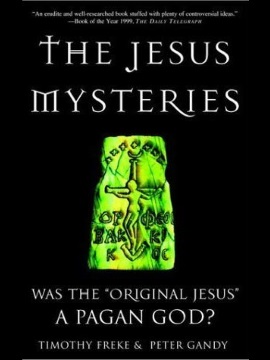 Despite being an atheist, I had always accepted the existence of a man called Jesus Christ as actual but Freke and Gandy's "Jesus Mysteries" forced me to re-evaluate my view. Although I did not believe Jesus was the son of any god, I had envisaged him a s real, perhaps a Jewish leader, perhaps a "freedom-fighter", perhaps wise, perhaps soft-spoken and the kind of man around which legends are built ... a kind of early-day Robin Hood if you like. In their book, the authors reveal the mystery religions, whose various dying & resurrecting godmen they refer to as "Osiris-Dionysus", as showing a great degree of similarity in their multi-level teachings that were interpreted more literally by the uninitiated and allegorically by the initiated.
Despite being an atheist, I had always accepted the existence of a man called Jesus Christ as actual but Freke and Gandy's "Jesus Mysteries" forced me to re-evaluate my view. Although I did not believe Jesus was the son of any god, I had envisaged him a s real, perhaps a Jewish leader, perhaps a "freedom-fighter", perhaps wise, perhaps soft-spoken and the kind of man around which legends are built ... a kind of early-day Robin Hood if you like. In their book, the authors reveal the mystery religions, whose various dying & resurrecting godmen they refer to as "Osiris-Dionysus", as showing a great degree of similarity in their multi-level teachings that were interpreted more literally by the uninitiated and allegorically by the initiated.
From the Big Bang to the Current Universe
James C. Rocks [2016-01-15]
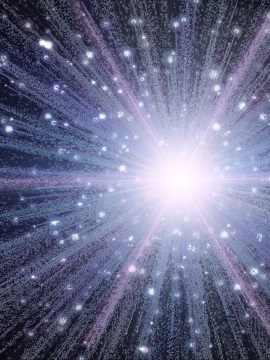 The big bang is decidedly at odds with fundamentalist interpretations of the bible as outlined in Genesis and creationists typically maintain that this theory is, at best, hard to believe as no known cataclysmic events have ever formed order out of their chaos. In lay terminology, the big bang theory describes how the universe started from a huge "explosion" many billions of years ago and that all the material subsequently thrown from it eventually condensed to form galaxies, stars and planets. In this article, I hope to demonstrate what happened following the big bang, provide evidence supporting this theory of the origin of the universe and answer some of the questions/criticisms usually levelled at it by creationists.
The big bang is decidedly at odds with fundamentalist interpretations of the bible as outlined in Genesis and creationists typically maintain that this theory is, at best, hard to believe as no known cataclysmic events have ever formed order out of their chaos. In lay terminology, the big bang theory describes how the universe started from a huge "explosion" many billions of years ago and that all the material subsequently thrown from it eventually condensed to form galaxies, stars and planets. In this article, I hope to demonstrate what happened following the big bang, provide evidence supporting this theory of the origin of the universe and answer some of the questions/criticisms usually levelled at it by creationists.
When Will We Learn?
James C. Rocks [2016-01-01]
 September the 11th, 2001 felt like a turning point for the world. Yes, we'd had terrorism before, but never (it seemed) such a catastrophic and appallingly planned one it would seem as well as one that played out, with its bloody aftermath, on TV in front of us all.We laughed when we heard a plane had struck the World Trade Centre, why shouldn't we have done? It wasn't real! Just some daft amateur we thought. We were so very, very wrong!
September the 11th, 2001 felt like a turning point for the world. Yes, we'd had terrorism before, but never (it seemed) such a catastrophic and appallingly planned one it would seem as well as one that played out, with its bloody aftermath, on TV in front of us all.We laughed when we heard a plane had struck the World Trade Centre, why shouldn't we have done? It wasn't real! Just some daft amateur we thought. We were so very, very wrong!
Jesus Wuvs Me
Worldling [2015-12-01]
 A humorous piece of poetry written by a one-time collague of mine who used the handle, "Worldling"
A humorous piece of poetry written by a one-time collague of mine who used the handle, "Worldling"
The Human Pinnacle
Bethnewt [2015-11-01]
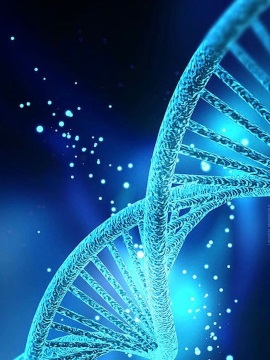 Many people believe that evolution proceeds by changing organisms slightly, so that species can be lined up to form a gradual series that shows complexity slowly increasing. This view was once held by most biologists but has since been discarded. However, it has been dumpster-dived by creationists seeking materials for straw-man representations of evolutionary theory. Evolution actually takes the form of a branching family tree. Stephen Jay Gould calls ladders and bushes "the wrong and right metaphors respectively for the topology of evolution"
Many people believe that evolution proceeds by changing organisms slightly, so that species can be lined up to form a gradual series that shows complexity slowly increasing. This view was once held by most biologists but has since been discarded. However, it has been dumpster-dived by creationists seeking materials for straw-man representations of evolutionary theory. Evolution actually takes the form of a branching family tree. Stephen Jay Gould calls ladders and bushes "the wrong and right metaphors respectively for the topology of evolution"
Radiometric Dating Methods
James C. Rocks [2015-10-15]
 Despite creationist claims to the contrary, radio-isotopic dating methods are accurate to within acceptable limits. The most common claim (aside from references to experiments where a given dating method was demonstrated as fallible) is that a given method's assumptions may have been violated. Typically, these revolve around the constancy of decay rates and claims that contamination may have occurred.
Despite creationist claims to the contrary, radio-isotopic dating methods are accurate to within acceptable limits. The most common claim (aside from references to experiments where a given dating method was demonstrated as fallible) is that a given method's assumptions may have been violated. Typically, these revolve around the constancy of decay rates and claims that contamination may have occurred.
The Perfect Designs of God
James C. Rocks [2015-09-01]
 Creationists and those favouring intelligent design often point to us, to the complexity, the perfection & the sheer improbability of the world around us in order to justify their view that there must be a designer for the universe, but is this viewpoint fully justifiable?
Creationists and those favouring intelligent design often point to us, to the complexity, the perfection & the sheer improbability of the world around us in order to justify their view that there must be a designer for the universe, but is this viewpoint fully justifiable?
Religion and Morality
James C. Rocks [2015-03-01]
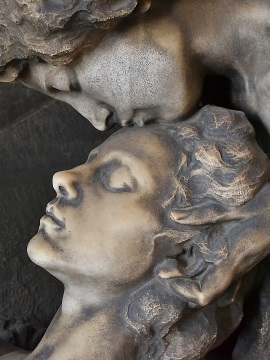 Young Earth creationists, believing the Earth & universe were divinely created, use arguments attempting to show other ideas as immoral and Neo-Darwinism the cause of violence, racism and other forms of immoral behaviour. They favour arguments citing communist Russia, Nazi Germany and others. It is interesting to look at religions' records on human rights and abuses before one starts a comprehensive defence of such charges and that is what this article attempts to do.
Young Earth creationists, believing the Earth & universe were divinely created, use arguments attempting to show other ideas as immoral and Neo-Darwinism the cause of violence, racism and other forms of immoral behaviour. They favour arguments citing communist Russia, Nazi Germany and others. It is interesting to look at religions' records on human rights and abuses before one starts a comprehensive defence of such charges and that is what this article attempts to do.
Does God Exist?
James C. Rocks [2015-02-01]
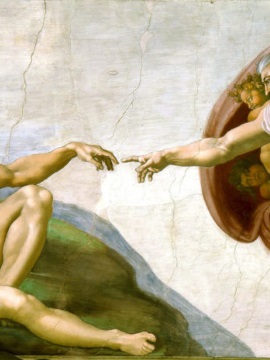 Despite the fact that there is no evidence to support their existence many that make the claim that a god or gods exist ... for the remainder of this article such phenomena will all be referred to as God or god. In the case of Christianity, Judaism (Jehovah) or Islam (Allah) and, indeed, many other religions the god in question is an all powerful, divine force or entity that "created" or "is" or "contains" the universe and/or watches over it and/or permeates every aspect of our lives.
Despite the fact that there is no evidence to support their existence many that make the claim that a god or gods exist ... for the remainder of this article such phenomena will all be referred to as God or god. In the case of Christianity, Judaism (Jehovah) or Islam (Allah) and, indeed, many other religions the god in question is an all powerful, divine force or entity that "created" or "is" or "contains" the universe and/or watches over it and/or permeates every aspect of our lives.
What Is Atheism?
James C. Rocks [2015-01-01]
 When debating creationists, atheists are often accused of having faith. The argument goes that to believe there is no god requires as much (if not more) faith than it requires believing there is one. The argument can be based on the claim that the atheist must believe in something and therefore must positively disbelieve in a god or gods, a position of faith. If the theist view is correct and atheism is a position of faith then atheists are hypocrites for attacking the views of other religions when theirs is also a position of faith.
When debating creationists, atheists are often accused of having faith. The argument goes that to believe there is no god requires as much (if not more) faith than it requires believing there is one. The argument can be based on the claim that the atheist must believe in something and therefore must positively disbelieve in a god or gods, a position of faith. If the theist view is correct and atheism is a position of faith then atheists are hypocrites for attacking the views of other religions when theirs is also a position of faith.